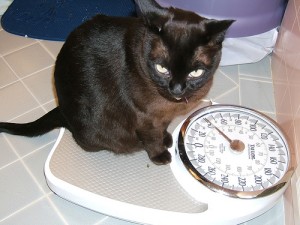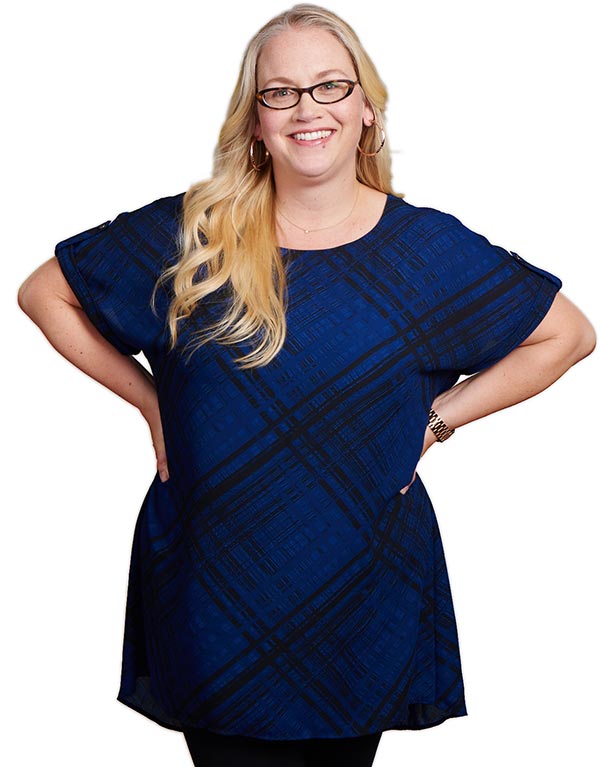Part 3 of the excerpt from my book Food: The Good Girl’s Drug. Enjoy!
Are all binge eaters or emotional overeaters overweight? Not at all. This is a huge misperception that people have about emotional overeaters. I know people who have been reluctant to get help because they figure that if their body size is about right, their problem isn’t “bad” enough to need fixing. “Believing your size is an indication of your mental or physical health is incorrect,” said Dr. Nardozzi. “The extreme ends of eating disorders can lead to sizes that are way too small and too big. But what you really need to look at are your behaviors and your mind-set. Are you obsessing about food and your body? Is your mood affected by what you eat? Are you feeling bad about yourself for eating large amounts of food or are you restrictive with your eating after indulging? That’s a better indicator of whether you have an eating problem than your weight alone.”
Some emotional overeaters are overweight or obese from the time they’re children, but others yo-yo up and down, stay in a pretty normal range, or even become underweight because of things like overexercising or dieting. Kendra said she knows logically that her weight is normal, but she doesn’t feel like it. “I weigh 123 pounds and I’m five six, so technically I’m ‘healthy,’ but I don’t feel healthy,” she told me. “I don’t feel healthy unless I see definition in my abs and weigh 112.” (At 112 pounds, by the way, Kendra would be clinically underweight; just a few pounds from the official definition of anorexic.) Twenty-one-year-old Sarah, on the other hand, said she’s always been on the larger side. “You could say that I am morbidly obese, but I just say that I’m really overweight,” she explained. “I’m only five two and weigh about 260 pounds. I’m not comfortable in my body and always wear really baggy clothes.”
Weight fluctuations are incredibly common among overeaters. Amanda weighed just one hundred pounds after severely restricting herself in high school and her early college years—but she quickly put on forty pounds in one year once she started bingeing again. I’ve yo-yo’d, too. As an adult, I have been as slim as a size eight and as large as a size twenty. My weight is stable now and naturally fluctuates between five and ten pounds, depending on how active I’ve been and where I am in my cycle. The moral of these stories? Emotional overeaters come in all shapes and sizes.
What Exactly Is a “Binge,” Anyway?
Eating disorder professionals define a binge as eating a large amount of food in a short period of time, and experiencing a feeling of being out of control while doing it. In reality though, bingeing means different things to different people—and binges can change throughout your life as you start to recover from your eating issues, said clinical psychologist Cynthia Bulik, Ph.D., director of the University of North Carolina eating disorders program. “The key issue is if it causes distress to the individual and/or interferes with their life in any way,” she says. “That could mean not going out with friends to eat, avoiding social situations in which there is food, choosing to stay at home with your binge foods over going to work. In fact, there is also something we call ‘subjective’ binges, where the amount of food isn’t actually that large, but the person still feels out of control. Someone might eat one chocolate chip cookie and feel like she is completely out of control—she transgressed her boundary for what was okay and feels like she binged.”
“When soothing anxiety, I reach for sugar and carbs,” Razieh told me. “Anything that I have been staring at all week, convincing myself not to eat, is usually the first thing I grab. But often it’s the large variety of foods that defines my binges now. The thought of eating two slices of pizza for lunch will be too overwhelming, so I try to just have a couple of snacks instead. But that’s not satisfying, so it leads to seven or eight small snacks, like a handful of nuts, a chocolate bar, a piece of bread, a yogurt, some popcorn and a granola bar—ultimately resulting in more calories than the two slices of pizza. It’s so mental!”
My bingeing was at its worst in my early twenties. I was divorced (yes, divorced! I had a very brief marriage from twenty-one to twenty-three), depressed, lonely, and scared, and I relied on food to soothe myself. Two of my favorite binge foods during that time of my life were peanut butter M&M’s and miniature Reese’s peanut butter cups. I’d buy a big one-pound “family size” bag of one of those, and then go home, shut myself up in my room safe from the prying eyes of my roommates, and just eat. I’d shove the candy in my mouth as fast as possible, chewing like a machine, until I felt sick. A few times I remember having to lie facedown on my bed with a pillow under my belly to soothe the pain. Sometimes, after my stomach felt better, I’d start eating again.
No one could call that behavior anything but disordered. But often bingeing and emotional eating are more subtle than that. “My binges are the result of stress, usually with school, but sometimes with family, too,” said Trish, a twenty-three-year-old law student. “Law school is tough, and I find myself in pressure overloads more often than not, which leads me to binge unconsciously. I say ‘unconsciously’ because I am so focused on my schoolwork and applying for internships and moot court teams that I don’t realize how much I actually eat, or what I’m putting in my mouth. I order Chinese food or sushi or pizza and I sit at my kitchen table with three hundred pages of criminal law to read, and I just put food into my mouth without so much as looking at it until I’m full. Then, once I realize that I just ate a whole container of General Tso’s, I have my postbinge guilt trip. All of my focus comes off of my work and onto my flaws. I think about how I have no self-control, how I’m obese, and I look down at my belly in disgust and let my thoughts abuse me.”
Eating for psychological reasons, rather than from hunger, is called many things—binge eating disorder, EDNOS, emotional overeating, compulsive eating, binge eating, loss-of-control eating, food addiction, stress eating. And it can have many variations and levels of severity. But whether you meet the criteria for an official eating disorder diagnosis or not, if your overeating and food obsession is causing you pain and problems in your life, you deserve to get better.
[photo via alasam]



![Have You Ever Choosen Food Over People? [HealthyGirl.org BookClub]](../../../../wp-content/uploads/2011/01/book_3d-205x300.png)
![How Do <i>You</i> Describe Your Issues With Food? [HealthyGirl BookClub]](../../../../wp-content/uploads/2011/05/715890075_16dc54bc9f-300x199.jpg)
![Why Don't More People <i>Talk</i> About Binge Eating? [book excerpt]](../../../../wp-content/uploads/2011/04/2820911176_073c63d857-199x300.jpg)
![Would Someone Please Explain Why I Can't Stop Eating? [book excerpt]](../../../../wp-content/uploads/2011/04/MARTINI-222x300.jpg)
I have to say my emotional eating started early in life. I was sexually harassed at school in about the 3rd grade, my mother was slipping into schizophrenic tendancies and just sneaking cookies made me feel better. Cookies were there when I needed someone.
It continued on to adulthood….
I have struggled with disordered eating for years, including restrictive eating and binging. Throughout that time I have always managed to maintain what is considered a “healthy” weight.
Just because someone does not look sick, does not mean that they are not sick. This idea applies to both physical (e.g.diabetes) and mental/ emotional illnesses (e.g binge eating disorder, depression etc.).
Many distressed eaters (including myself) must often make the decision to attempt recovery without outside prompting, as their problems are not immediately obvious by appearance, and therefore, can be hidden easily and go unnoticed by others.
Great post, Sunny!
[…] posted to healthygirl.org on April […]
[…] is one of those and this week Sunny Gold shared an excerpt from her new book in which she explains what exactly counts as a binge – a question that I get asked all the […]
[…] to—hey, that’s OK), you can read most of the first chapter in these excerpts here, here and here. Just to recap, each Friday for the next several weeks, I’m going to choose one section, […]
I have struggled with binge eating for the past few years of my life. The heaviest I’ve ever been is 156 pounds, but I’ve lost and gained 10 pounds several times over these years because of the binge eating. Just recently I had lost about 16 pounds then my depression was relapsing and I just lost control and gained it all back within a month. Its a horrible, awful, self-deprecating cycle.
i constantly want to eat all kinds of foods and get way to full but still want to eat more is this binge eating and its foods of all kinds and im over weight